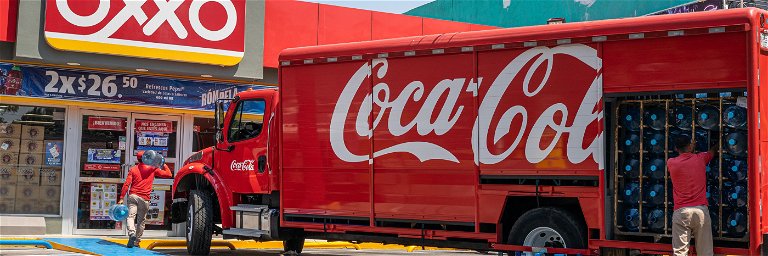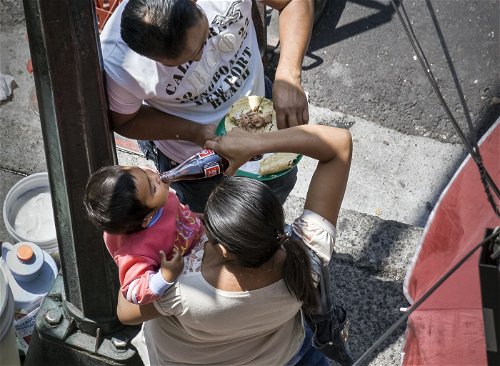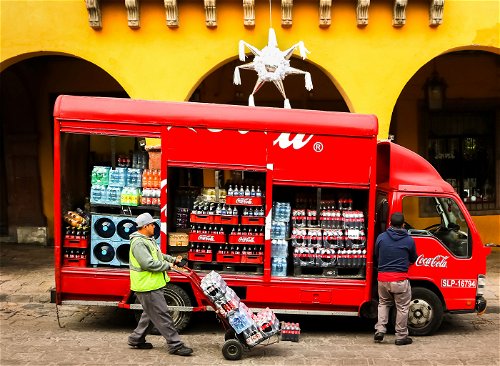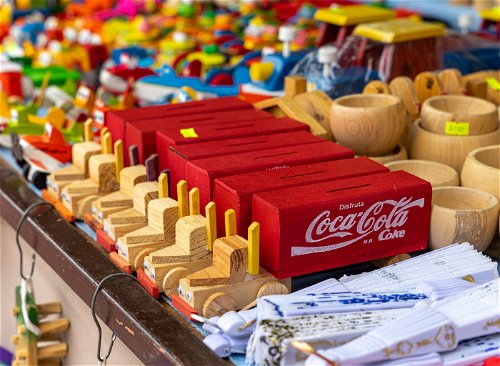Land of the seduced: What Coca-Cola has to do with obesity in Mexico
A quarter of the Mexican population is too fat. Will Mexico succeed in freeing itself from its dependence on sugar and fat?
Mexico has an obsession with fast and junk food, and the country's streets are littered with burger, pizza and taco stalls. They have gradually displaced traditional cuisine - which is high in calories but not unhealthy - based on corn, beans and chilli from everyday life. With the exception of the USA, no other country in the world has such a dense network of fast food chains. The image of parents breastfeeding their babies with pacifier bottles full of Fanta best illustrates the seriousness of the situation - and it is no longer a rare sight in Mexico.
On average, every inhabitant of Mexico consumes two litres of soft drinks a day, an alarming world record. And experts predict that the local soft drinks industry will even increase its turnover in the coming years; from currently around 18.3 billion to 21.06 billion euros in 2027.
Epidemic state
Of course, this careless approach to calories is taking its toll: in no other country in the world has the number of overweight and obese people skyrocketed in the past two decades. 75 percent of Mexico's 126 million inhabitants suffer from obesity, only the USA has a higher figure. In Austria, by comparison, the figure is a "meagre" 34.5%. Obesity is even more widespread among minors in Mexico. Every third child has significantly too much on their ribs and has to fear type 2 diabetes - actually a disease of old age.
Diabetes is the number one cause of death in the Latin American country. The number of patients doubled between 2011 and 2021. Experts are already predicting a decline in average life expectancy in Mexico.
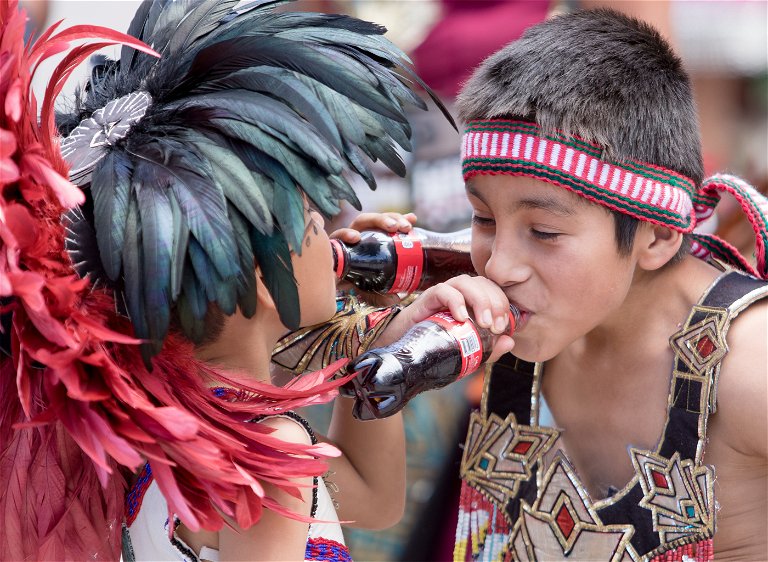
Great Americanization
But why has the land of the Aztecs, of all places, maneuvered itself into this disastrous situation? If you try to get to the bottom of this question, you will find an explanation for a phenomenon that is described as insatiable - and which, it should be mentioned, also brought a lot of good to the once poor, structurally weak Mexico: capitalism. In 1994, the USA, Mexico and Canada formed a joint free trade zone as part of the NAFTA agreement, each with open markets for the others, which allowed industry in the low-wage country of Mexico in particular to flourish. Billions were invested.
Automotive groups such as Toyota, General Motors, Volkswagen and Audi opened plants in Mexico. Tesla will also build a gigafactory in the country.
At the same time - and this is the other side of the coin - US food companies took advantage of the abolition of import duties to conquer the newly opened market. One by one, supermarket chains took over the old, traditional grocery stores and decimated the supply of fresh fruit and vegetables in favour of industrialised foods full of salt, sugar, fat and artificial ingredients.
The consumption of unprocessed food has fallen by a third over the last twenty years, and that of beans by as much as half. At the same time, the view of soft drinks, junk food and the like as symbols of advancement has become firmly established in the minds of Mexicans. The Americanisation of nutrition has penetrated so deeply into society that even Mayan shamans used cola as a remedy. For decades, the soft drinks company has deliberately influenced them and the rest of the indigenous population with advertising with spiritual connotations.
And then there is the water problem: in San Cristóbal de las Casas, for example, a city in southern Mexico, soft drinks are easier to find than clean water from the tap. Coca-Cola is allowed to tap more than one million litres of groundwater a day in the city of 215,000 inhabitants with permission from the state. And this is just one example of many.
So what to do? It is anything but easy for the population to free themselves from their addiction, explains doctor Siegfried Meryn. "When a body is taken from the childhood stage, if we are conditioned to eat sugar and fat from an early age, it is very difficult to change, and the temptations of the food industry are becoming increasingly refined." The body develops a real addiction to sugar, white flour and other readily available carbohydrates. The more you eat, the more your body craves it. "A vicious circle from which we can only escape with difficulty. And even if we succeed, the addiction remains stored in our brain like permanently installed software," warns the health expert.
Helpless in battle
In Mexico, a lot is currently being done to prevent this from happening in the first place: drinking water dispensers are being set up in public places, fitness programmes at bus stops are designed to encourage people to exercise spontaneously while waiting, and warning labels on food packaging are informing the public. However, all these measures are not yet having the desired effect - probably because they are mainly coming from the civilian population, which has comparatively little influence in Mexico.
So far, the state has reacted only cautiously. And there is a reason for this. In Mexico, the relationship between the government and the food and beverage industry has traditionally been so close that executives regularly move back and forth between government and corporate positions. The road back to a healthy diet is still a long one in Mexico.
